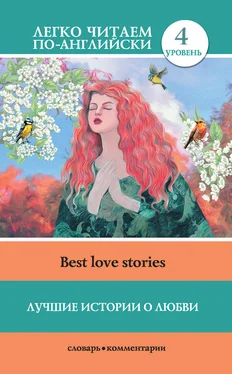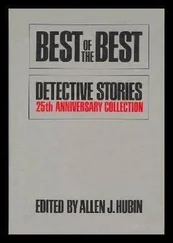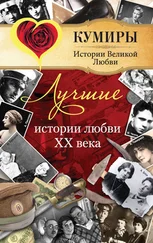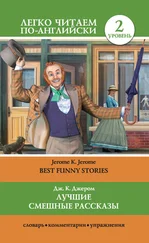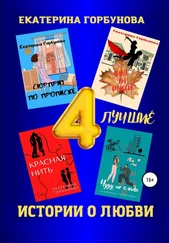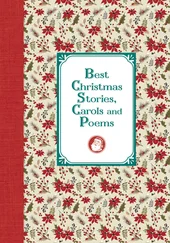‘Go on,’ she said, ‘I’m ashamed to say – I like it. I didn’t know you were so upset then. I thought it was me who was upset.’
‘You!’ he exclaimed. ‘Don’t you remember throwing me over at the drugstore.’ He laughed. ‘You stuck out your tongue at me.’
‘I don’t remember at all. It seemed to me you did the throwing over.’ Her hand fell lightly, almost consolingly on his arm. ‘I’ve got a photograph book upstairs I haven’t looked at for years. I’ll go there and find it.’
Donald sat for five minutes with two thoughts – first the hopeless impossibility of reconciling what different people remembered about the same event – and secondly that in a frightening way Nancy moved him [53]as a woman as she had moved him as a child. Half an hour had developed an emotion that he had not known since the death of his wife – that he had never hoped to know again.
Side by side on a couch they opened the book between them. Nancy looked at him, smiling and very happy.
‘Oh, this is such fun,’ she said. ‘Such fun that you’re so nice, that you remember me so – beautifully. Let me tell you – I wish I’d known it then! After you’d gone I hated you.’
‘What a pity,’ he said gently.
‘But not now,’ she reassured him, and then impulsively, ‘Kiss and make up – ’
‘…that isn’t being a good wife,’ she said after a minute. ‘I really don’t think I’ve kissed two men since I was married.’
He was excited – but most of all confused. Had he kissed Nancy? or a memory? or this lovely trembly stranger who looked away from him quickly and turned a page of the book?
‘Wait!’ he said. ‘I don’t think I could see a picture for a few seconds.’
‘We won’t do it again. I don’t feel so very calm myself.’
‘Wouldn’t it be awful if we fell in love again?’ said Donald.
‘Stop it!’ She laughed. ‘It’s all over. It was a moment. A moment I’ll have to forget.’
‘Don’t tell your husband.’
‘Why not? Usually I tell him everything.’
‘It’ll hurt him. Don’t ever tell a man such things.’
‘All right I won’t.’
‘Kiss me once more,’ he said, but Nancy had turned a page and was pointing eagerly at a picture.
‘Here’s you,’ she cried. ‘Right away!’
He looked. It was a little boy in shorts standing on a pier with a sailboat in the background.
‘I remember – ’ she laughed triumphantly, ‘ – the very day it was taken. Kitty took it and I stole it from her.’
For a moment Donald failed to recognize himself in the photo – then, bending closer – he became convinced that the boy in the photo wasn’t him.
‘That’s not me,’ he said.
‘Oh yes. It was at Frontenac – the summer we – we used to go to the cave.’
‘What cave? I was only three days in Frontenac.’ Again he looked closely at the slightly yellowed picture. ‘And that isn’t me. That’s Donald Bowers. We did look rather alike.’
Now she was staring at him – leaning back, seeming to lift away from him.
‘But you’re Donald Bowers!’ she exclaimed; her voice rose a little. ‘No, you’re not. You’re Donald Plant .’
‘I told you on the phone.’
She was on her feet – her face faintly horrified.
‘Plant! Bowers! I must be crazy. Or it was that drink? I was mixed up a little when I first saw you. Look here! What have I told you?’
He tried to keep calm as he turned a page of the book.
‘Nothing at all,’ he said. Pictures that did not include him formed and re-formed before his eyes – Frontenac – a cave – Donald Bowers – ‘You threw me over!’
Nancy spoke from the other side of the room.
‘You’ll never tell this story,’ she said. ‘Stories have a way of getting around. [54]’
‘There isn’t any story,’ he hesitated. But he thought: so she was a bad little girl.
And now suddenly he was filled with wild jealousy of little Donald Bowers – he who had banished jealousy from his life forever. In the five steps he took across the room he crushed out twenty years and the existence of Walter Gifford.
‘Kiss me again, Nancy,’ he said, sinking to one knee beside her chair, putting his hand upon her shoulder. But Nancy stepped away.
‘You said you had to catch a plane.’
‘It’s nothing. I can miss it. It’s of no importance.’
‘Please go,’ she said in a cool voice. ‘And please try to imagine how I feel.’
‘But you act as if you don’t remember me,’ he cried, ‘ – as if you don’t remember Donald Plant !’
‘I do. I remember you too… But it was all so long ago.’ Her voice grew hard again. ‘The taxi number is Crestwood 8484.’
On his way to the airport Donald shook his head from side to side. He was completely himself now but he could not understand what had happened. Only as the plane took off and its passengers became a different entity from the world below did he draw a parallel from the fact of its flight. For five blinding minutes he had lived like a madman in two worlds at once. He had been a boy of twelve and a man of thirty-two, indissolubly and helplessly commingled.
Donald had lost a good deal, [55]too, in those hours between the planes – but since the second half of life is a long process of getting rid of things, that part of the experience probably didn’t matter.
The Nightingale and the Rose
Oscar Wilde
“She said that she would dance with me if I brought her red roses,” cried the young Student; “but in all my garden there is no red rose.” From her nest in the oak tree the Nightingale heard him, and she looked out through the leaves, and wondered.
“No red rose in all my garden!” he cried, and his beautiful eyes filled with tears. “Ah, on what little things does happiness depend! I have read all that the wise men have written, and all the secrets of philosophy are mine, but my life is wretched because of a red rose.”
“Here at last is a true lover,” said the Nightingale. “Night after night have I sung of him, though I did not know him; night after night have I told his story to the stars, and now I see him. His hair is dark as the hyacinth, and his lips are red as the rose of his desire; but passion has made his face like pale ivory, and sorrow has set her seal upon his brow. [56]”
“The Prince gives a ball tomorrow night,” murmured the young Student, “and my love will be there. If I bring her a red rose she will dance with me till dawn. If I bring her a red rose, I shall hold her in my arms, and she will lean her head upon my shoulder, and her hand will be clasped in mine. But there is no red rose in my garden, so I shall sit lonely, and she will pass me by, and my heart will break.”
“Here indeed is the true lover,” said the Nightingale. “What I sing of, he suffers what is joy to me, to him is pain. Surely Love is a wonderful thing. It is more precious than emeralds, and dearer than fine opals. It may not be purchased of the merchants, nor can it be weighed out in the balance for gold.”
“The musicians will sit in their gallery,” said the young Student, “and play upon their stringed instruments, and my love will dance to the sound of the harp and the violin. She will dance so lightly that her feet will not touch the floor, and the courtiers in their bright dresses will throng round her. But with me she will not dance, for I have no red rose to give her”; and he threw himself down on the grass, and buried his face in his hands, and wept.
“Why is he weeping?” asked a little Green Lizard, as he ran past him with his tail in the air.
“Why, indeed?” said a Butterfly.
Читать дальше
Конец ознакомительного отрывка
Купить книгу
